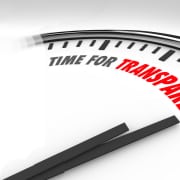|
Getting your Trinity Audio player ready...
|
 Corruption Watch receives, on average, 100 reports of corruption a month and more than three reports per day. These are logged through our incident reporter form on our website, or by SMS, email, post, fax, social media or landline calls.
Corruption Watch receives, on average, 100 reports of corruption a month and more than three reports per day. These are logged through our incident reporter form on our website, or by SMS, email, post, fax, social media or landline calls.
From now on we’ll be bringing you a snapshot of some of the corruption reports we receive each week, so you can get a better idea of the trends we're picking up.
Here are three recent cases*:
Report 1
“We are contractors building RDP units on the West Rand for a certain construction company. After we have completed the units, the construction company staff tell us that in order for the inspectors to come out, we must pay the staff members and the inspectors bribes, which range from R100 to R1 000. The units have all been completed successfully, but an inspection is refused unless we pay a bribe.”
Experienced something similar? Report it to Corruption Watch here.
Report 2
“According to official documents from the Department of Agriculture, Forestry and Fisheries; a road has been built at a cost of R3.4-million in the Marble Hall region of Limpopo. My concern as a citizen is that there was never a road built. I can assure you that the road has remained a gravel one for almost 20 years. I would like to know what the money was spent on as there is no evidence of the project taking place.”
Experienced something similar? Report it to Corruption Watch here.
Report 3
There is a state hospital on the East Rand where nurses aren’t taking proper care of patients, especially at night. Admin staff also tell people that there are only three doctors on duty so the person will have to wait, even if it’s an emergency. A friend of mine was stabbed once and they took him to the hospital, which was full of emergency cases. He had to pay a bribe to a nurse to get special attention as he was losing a lot of blood.”
Experienced something similar? Report it to Corruption Watch here.
So what do we do with the reports?
Every week a multi-disciplinary team at Corruption Watch decides what action needs to be taken for each report. The possibilities include :
• Adding the report to a number of similar reports which we are campaigning on. For example, we group all reports of traffic cop bribery for actions under our No More TjoTjo campaign.
• Publishing the report on our website so that other people who have knowledge of similar incidents can read it and report further.
• Using the incident as the basis for a news story or research report, which is published on our website.
• Referring the incident to a journalist to expose the incident on our website or in the media.
• Asking for more information from the person who reported the incident to us.
• Starting an investigation.
• Referring the incident to a government authority for investigation (such as the Independent Police Investigative Directorate or Public Protector).
• Taking some kind of legal or political action in respect of the incident reported – for example, writing letters to the relevant authority, making a Promotion of Access to Information Act (PAIA) application.
*Extra details that could identify the reporter have been taken out









